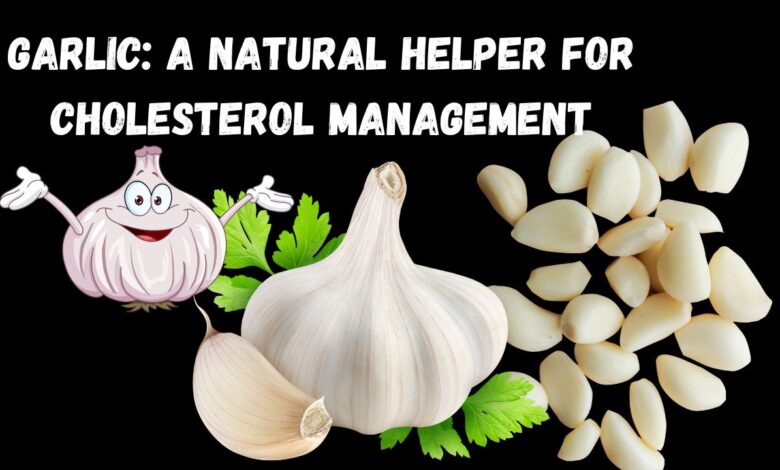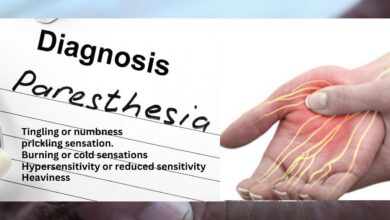
Introduction
Garlic has been a kitchen staple for centuries, beloved for its pungent flavor and aroma. But did you know this humble bulb is also a powerhouse when it comes to heart health? Let’s dive into the world of garlic and explore how it can help tackle cholesterol, boost overall health, and add zest to your meals.
The Nutritional Profile of Garlic
Garlic isn’t just flavorful; it’s packed with nutrients that support overall health:
- Vitamins: C and B6
- Minerals: Manganese and selenium
- Calories: A mere 4 per clove
The Star Player: Allicin
At the heart of garlic’s health benefits is allicin, the compound responsible for both its distinctive odor and many of its medicinal properties. Allicin is formed when garlic is crushed or chopped, triggering a chemical reaction.
“Allicin is like garlic’s secret weapon, unleashing a host of health benefits with every bite.”
Garlic and Heart Health
Garlic doesn’t just target cholesterol; it supports overall cardiovascular health in several ways:
- Blood Pressure Regulation
- Antioxidant Protection
- Anti-inflammatory Effects
Blood Pressure Benefits
Studies have shown that garlic can help lower blood pressure, with effects comparable to some medications. A 2016 review published in the Journal of Nutrition found that garlic supplements could reduce systolic blood pressure by an average of 5.1 mm Hg and diastolic blood pressure by 2.5 mm Hg.
Garlic’s Impact on Cholesterol
Garlic truly shines when it comes to managing cholesterol levels. Here’s how it works its magic:
Lowering LDL Cholesterol
Garlic has been shown to reduce levels of LDL (low-density lipoprotein) cholesterol, often referred to as “bad” cholesterol. A meta-analysis published in Nutrition Reviews in 2013 found that garlic consumption was associated with a 10% reduction in total cholesterol and a 15% reduction in LDL cholesterol.
Boosting HDL Cholesterol
Some studies suggest that garlic may also help increase levels of HDL (high-density lipoprotein) cholesterol, the “good” cholesterol that helps remove other forms of cholesterol from the bloodstream.
The Mechanism
Garlic’s cholesterol-lowering effects are primarily attributed to its sulfur compounds. These compounds appear to inhibit cholesterol synthesis in the liver, effectively telling the body to produce less cholesterol.
Incorporating Garlic into Your Diet
Getting more garlic into your meals is easy and delicious. Here are some ideas:
Raw Garlic
- Add minced raw garlic to salad dressings
- Mix into homemade dips or spreads
Roasted Garlic
- Spread on whole-grain bread
- Mash into potatoes for a flavorful side dish
Sautéed Garlic
- Use as a base for soups and stews
- Add to stir-fries for an aromatic kick
Garlic Powder
- Sprinkle on roasted vegetables
- Use in marinades for meat or vegetables
Remember: Consistency is key. Regular consumption of garlic is important for reaping its cholesterol-lowering benefits.
Beyond Cholesterol: Other Health Benefits
Garlic’s benefits extend beyond heart health:
- Immune System Support: Garlic may help reduce the severity and duration of common illnesses like the flu.
- Potential Cancer-Fighting Properties: Some studies suggest garlic consumption may be associated with a reduced risk of certain cancers.
- Anti-inflammatory Effects: Garlic’s compounds may help reduce inflammation throughout the body.
Precautions and Considerations
While garlic is generally safe for most people, there are some considerations:
- Blood Thinners: If you’re taking blood-thinning medications, consult your doctor before significantly increasing your garlic intake.
- Digestive Issues: Some people may experience stomach upset from consuming large amounts of garlic.
- Allergies: While rare, garlic allergies do exist. Start with small amounts if you’re unsure.
Also Read:Importance Of Hydration: How Water Affects Your Body Health? 10 key reasons
Conclusion
Garlic is more than just a flavorful addition to your meals; it’s a powerful ally in the fight against high cholesterol and heart disease. By incorporating garlic into your diet regularly, you may be able to improve your cholesterol levels and overall heart health. However, remember that garlic is not a magic solution. It works best as part of a balanced diet and healthy lifestyle, including regular exercise and check-ups with your healthcare provider.
So, why not add a little extra garlic to your next meal? Your taste buds – and your heart – might thank you for it!




